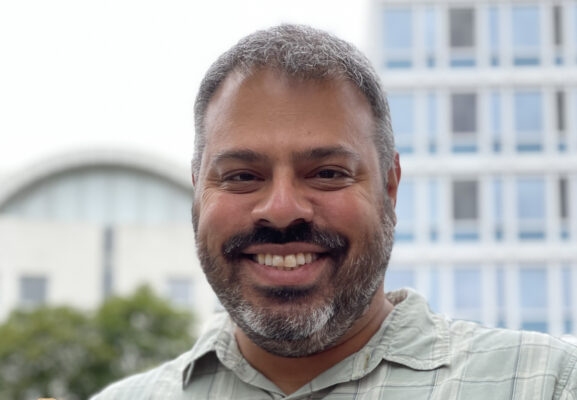Haseeb completed a BSc in Applied Zoology and a MSc in Parasitology at McGill University. He obtained his PhD in Biology (Parasitology) from the University of New Brunswick (Canada) under the co-supervision of Michael D. B. Burt and Gary W. Saunders in 2007. He then travelled to New Zealand to undertake a post doc in Evolutionary Ecology of marine parasites under the guidance of Robert Poulin at the University of Otago (2007-2011). He remained at Otago as a member of the academic staff in Ecology from 2011 to 2016 before moving to the Falkland Islands to take on the position of fisheries ecologist with the Falkland Islands Government Fisheries Department (2016 to 2020). He worked as a fisheries consultant with the South Atlantic Environmental Research Institute (2020-2021) in the Falkland Islands. Since July 2021, Haseeb is assistant professor of Marine Biology at the University of Iceland in the Faculty of Life and Environmental Sciences.
Plenary talk title: Research in the Falkland Islands: Jack of all trades, master of none.
Abstract: Serendipity is how I can best describe how I first came to visit the Falkland Islands back in 2007. From my very first visit, I fell in love with the country and their people. Best known for the conflict with Argentina and the war of 1982, the Falklands are an oasis for research opportunities. With a small isolated population and limited resources, environmental science has progressed slowly on these Islands and has often relied on external expertise. As a visiting scientist, I found the Falklands to be a land of opportunity, i.e. so much of its marine biodiversity was still waiting to be unearthed. Fast forward to 2016, as a government scientist, I quickly realised that with limited “on-Island” expertise, we all had to wear several hats and have our fingers in several pies at once. During my time in the Falklands, I had the opportunity to touch all aspects of fisheries management, from age & growth studies to licence compliance, to gain expertise in the MSC process, to dabble in parasitology, and to expand my scientific horizons. I learned many new skills in the Falkland Islands that have contributed to my growth as a scientist. Now, I hope to use these skills to make significant contributions in a country with a population more than 100 times that of the Falklands and to convince you that the Falklands is indeed more than a tourist destination – it can be a research destination.
